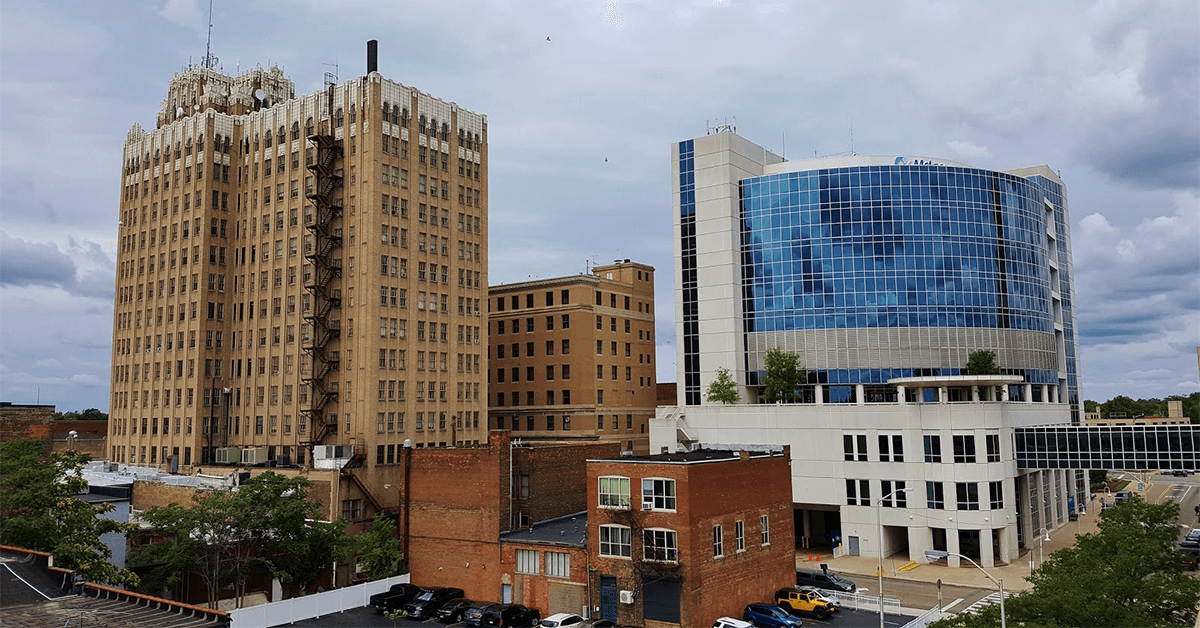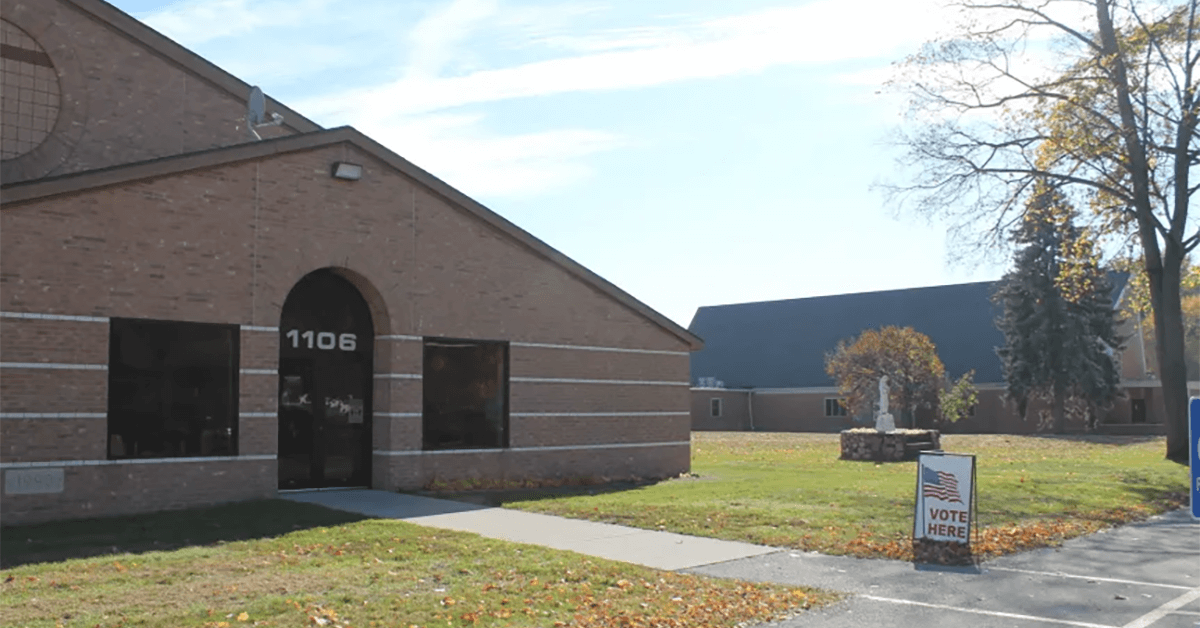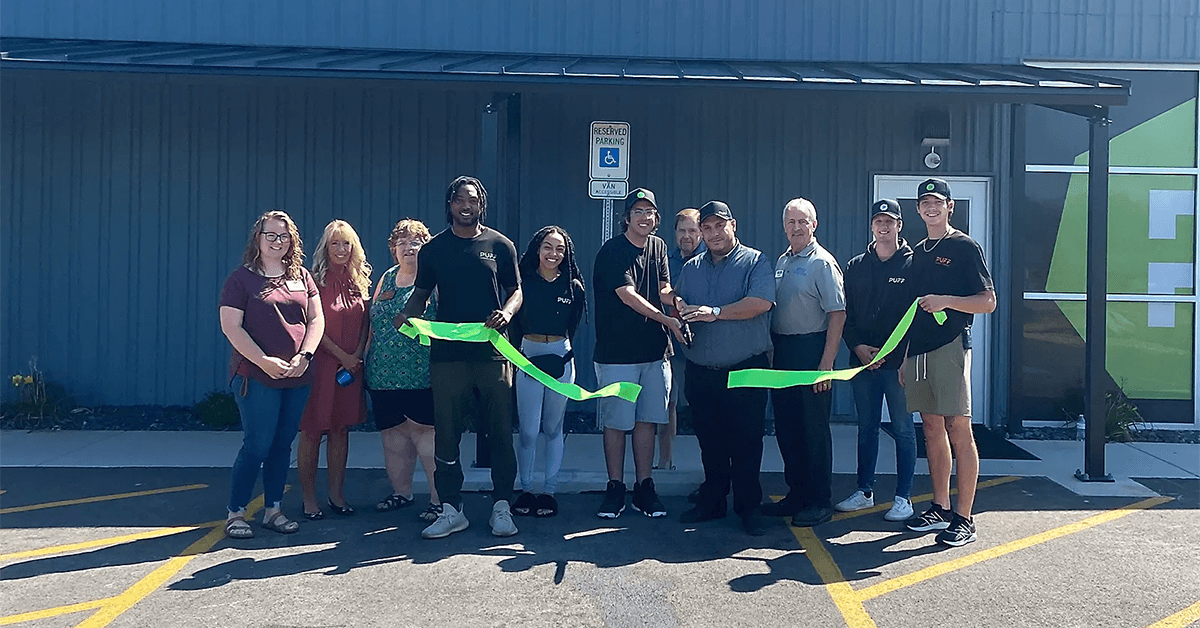Pontiac Votes to Open Doors for Recreational Cannabis Dispensaries

After a decisive vote on Tuesday, Pontiac is set to welcome the establishment of cannabis dispensaries, with 17 recreational cannabis retailers getting the green light from voters. This marks a significant move, shaped by the approval of a ballot proposal that outlines specific regulations and procedures the city must adhere to in the process of issuing licenses to businesses.
The ballot featured two pivotal recreational cannabis retail ordinances. The first, introduced by the Pontiac City Council in April 2023, and the second, an amendment made in October 2023, sought to refine the initial law. Both pieces of legislation faced challenges from various ballot question committees, which temporarily prevented their implementation.
With the passage of Proposal One by a 62% to 38% margin, the October ordinance is slated for activation following the election's certification. This will trigger a series of administrative steps, beginning with Pontiac City Clerk Garland Doyle setting a 21-day period for accepting license applications within 30 days. Additionally, the City Council is tasked with endorsing a scoring system to evaluate these applications.
City Council President Pro-tem William Carrington explained the council's role in approving a scoring guide that will be utilized by the city clerk for application assessment. Meanwhile, City Council President Mike McGuinness anticipates a swift and thoughtful execution of these plans, aiming to open the application window before the end of 2024. McGuinness also expressed a sentiment of fatigue over the prolonged legal and administrative battles surrounding cannabis regulation, highlighting a communal desire to move forward.
The path to this point has been long-awaited, as Pontiac voters had already shown support for medical cannabis dispensaries six years prior, yet no licenses were issued under the previous city administration. The newly passed ordinance prioritizes applicants with existing approvals for medical cannabis operations and introduces a point system that rewards rehabilitation efforts of dilapidated buildings and community philanthropy, among other criteria.
This ordinance encompasses a broad spectrum of regulatory matters, including application procedures, social equity considerations, background checks, and community engagement and improvement initiatives.
The successful passage of Proposal One was largely supported by Sensible Cannabis Reform for Pontiac, a group originally formed to oppose the April ordinance. The campaign received significant backing from Pleasantrees, a company with five dispensaries in Michigan and previous approval for a medical cannabis permit in Pontiac. Niccole Milton, Director of Community Outreach for Pleasantrees, voiced appreciation for the community's decision to further integrate into the regulated cannabis market.
Conversely, the proposal faced opposition from Citizens for Equitable Cannabis Reform. Despite potential for future challenges, Carrington remains hopeful for progress, emphasizing the electorate's desire for the benefits that the cannabis industry could bring to Pontiac.
Caro Voters Say No to Increasing Cannabis Grower Licenses

In a decisive move, voters in Caro, Michigan, have made their voices heard by overwhelmingly rejecting a proposal that sought to increase the number of adult-use cannabis grower licenses in the city. The verdict came during the Presidential Primary Election held on Tuesday, where the proposal, championed by the local advocacy group Green Citizens of Caro, faced a significant defeat. Garnering only 310 affirmative votes against 559 negative ones, the initiative failed to secure the community's approval.
The proposal aimed to expand Caro's cannabis industry infrastructure by allowing more adult-use grower licenses beyond the current count. Caro presently hosts two Class C grower licenses and is home to two marijuana dispensaries, Spark Cannabis and Premier Cannabis. Despite the setback, the operation of these dispensaries is expected to continue unaffected, maintaining the status quo within the city's cannabis business landscape.
City Manager Scott Czasak succinctly summed up the election's outcome, stating, "The citizens of Caro have spoken their piece." This sentiment reflects the democratic process at work, highlighting the community's active role in shaping the local cannabis industry's future.
In the run-up to the election, a notable number of Caro residents took to social media to express their unawareness of the proposal's inclusion on the ballot, indicating a possible gap in communication and outreach efforts by its proponents.
As for the Green Citizens of Caro and their future plans, it remains uncertain whether they will attempt to introduce a similar proposal in the upcoming August and November elections. Bianca Golani, who led the signature collection and spearheaded the proposal, was unavailable for comment at the time of this report.
The rejection of this proposal marks a critical juncture for Caro, as it navigates the evolving landscape of the cannabis industry within its jurisdiction. It underscores the importance of community engagement and awareness in the decision-making process regarding local cannabis policy and regulation.
Narrow Defeat for Cannabis Ordinance Amendment in Algonac

In a recent voting session, the residents of Algonac, Michigan, made their voices heard on several proposals, including a significant marijuana ordinance amendment. The amendment in question aimed at transforming the city's stance on cannabis businesses, proposing the repeal of the existing prohibition on marijuana establishments. Specifically, it sought to introduce a provision for the establishment of a marijuana dispensary within the city. This facility would have been licensed by the state of Michigan to offer both medical and recreational cannabis products, situated within a commercially zoned district of Algonac.
Despite a close contest, the proposal was ultimately not passed. According to the unofficial tally by the St. Clair County Clerk's Office, a narrow majority of 517 voters, accounting for approximately 51% of the total votes, opted against the amendment. In contrast, 503 voters, or about 49%, showed their support for the initiative. This outcome reflects the community's closely divided opinion on the topic of allowing cannabis dispensaries within the city limits.
The rejected proposal had outlined a progressive step towards integrating a state-licensed provisioning center that would cater to both medical and adult-use marijuana consumers. Such a move would have marked a significant shift in the local cannabis landscape, potentially setting a precedent for similar initiatives in other parts of the state. However, with the narrow defeat of the proposal, Algonac's existing ordinance, which prohibits marijuana establishments, remains in effect, maintaining the status quo regarding the availability and distribution of cannabis within the city.
Wisconsin Man Faces Charges for Transporting Michigan Cannabis Through Indiana

A Wisconsin resident, identified as Jonathan Millard, faces charges in La Porte Superior Court 1, Indiana, for alleged possession and intent to distribute a significant quantity of cannabis. The charges come after an incident on February 23rd, when Millard was stopped by law enforcement on Interstate 94 near Michigan City for multiple traffic violations, including failing to signal while changing lanes and following too closely to other vehicles.
During the stop, law enforcement officials discovered 56 one-pound packages of cannabis, 1,000 THC vape cartridges, various THC-infused edibles including gummies and syrup, and four jars of THC wax in Millard's rental vehicle. This discovery was made with the assistance of a K9 unit, which alerted officers to the presence of the substances.
Court documents indicate that Millard had traveled from his home in Wisconsin to the Detroit area and was on his way back when he was detained. The origin of the cannabis products, whether they were purchased legally from a dispensary, has not been disclosed.
This incident underscores a growing trend in LaPorte County, where there has been a notable increase in arrests related to the transportation of legally purchased cannabis in Michigan through Indiana, where cannabis remains illegal. Previous cases have involved individuals acquiring cannabis from dispensaries in Michigan locales such as New Buffalo Township and Buchanan.
Millard is potentially facing a six-year sentence for the level 5 felony charge. Following his arrest, he posted bond and was granted permission by a judge to return to Wisconsin to await further proceedings in his case.
Sturgis Welcomes New Puff Cannabis Co. Provisioning Center

Puff Cannabis Co., a prominent player in Michigan's cannabis industry, expanded its footprint by opening a new provisioning center in Sturgis, marking the occasion with a ribbon-cutting ceremony hosted by the Sturgis Area Chamber of Commerce this Wednesday. The new outlet, located at 651 Wade Street, spans 6,000 square feet and offers a wide range of cannabis products and services to the community.
Nick Hannawa, the owner and chief legal counsel for Puff Cannabis Co., led a comprehensive tour of the new facility, showcasing its offerings and emphasizing the company's commitment to serving the local community with high-quality cannabis products. Hannawa, who has played a pivotal role in the company's expansion, underscored the importance of the Sturgis location in Puff Cannabis Co.'s growing network of provisioning centers.
Since its inception in 2019, Puff Cannabis Co. has established itself as a significant entity in Michigan's cannabis market, with its headquarters in Madison Heights. The company's strategic expansion has led to the establishment of seven locations across the state, including Madison Heights, Utica, Bay City, Hamtramck, Traverse City, Oscoda, and now Sturgis. Moreover, Puff Cannabis Co. is set to further enlarge its presence with three additional locations slated to open soon, reinforcing its position within Michigan's cannabis industry.
The Sturgis provisioning center operates from 8 a.m. to 8 p.m., seven days a week, ensuring accessibility and convenience for customers seeking quality cannabis products.
Only Alien Cannabis Co.: A Trailblazing Seed-to-Smoke Lounge in Kalamazoo

In Kalamazoo, Michigan, a groundbreaking venture is changing the landscape of cannabis culture. Only Alien Cannabis Co. has emerged as a beacon of innovation in the cannabis industry, combining a Class A microgrow operation with a consumption lounge, offering a seed-to-smoke experience that is first of its kind in the state. Located at 4525 West KL Ave, this establishment is the brainchild of co-owners Royal Laraway IV, Marty Webber, George Webber, and Gabe Barham, who have transformed the former Great Lakes Shipping Co. restaurant into a modern sanctuary for cannabis enthusiasts.
Only Alien is not just a lounge but a holistic cannabis community hub. It is among only three venues in Michigan where cannabis can be legally purchased, consumed, and appreciated in a social setting, standing out for its unique combination of cultivation and consumption under one roof. The lounge's inception is a testament to the evolving attitudes toward cannabis, bridging the gap between the plant's prohibition past and its accepted future.
Revolutionizing the Cannabis Experience
The ethos of Only Alien revolves around three core principles: quality, community, and safety. This is not merely a place for cannabis consumption but a designed environment to foster connections and celebrate the plant's culture. The lounge's meticulous attention to detail, from its space-themed décor to its advanced air filtration system, and the emphasis on a safe, inclusive environment underscore its revolutionary approach. With armed security and a strict no alcohol policy, Only Alien ensures a secure and welcoming atmosphere for its patrons.
A Unique Seed-to-Smoke Journey
What sets Only Alien apart is its on-site microgrow operation, which currently nurtures 300 plants with plans for expansion. This not only guarantees the freshness and exclusivity of their product but also enriches the consumer's experience by offering a glimpse into the entire lifecycle of cannabis, from seed to smoke. While the lounge's in-house plants are maturing, customers can enjoy infused products, adhering to the lounge's policy of on-site consumption only.
Fostering a Vibrant Cannabis Community
The founders of Only Alien envision the lounge as more than a business; it's a platform for building a vibrant, informed, and engaged cannabis community. The space is designed to be a judgment-free zone where individuals can share experiences, learn, and grow together. With plans to integrate music events and possibly food options, Only Alien is poised to become a central hub for cannabis culture in Kalamazoo and beyond.
A Safe Haven for Cannabis Use
Acknowledging the legalities and safety concerns associated with cannabis use, Only Alien provides a responsible environment for consumption. The lounge's approach to safety extends to educating patrons on the importance of not driving under the influence, with Michigan State Police reminding users of the legal implications. Only Alien encourages the use of alternative transportation options to ensure the well-being of its community.
Conclusion
Only Alien Cannabis Co. stands as a pioneering model for the future of cannabis consumption lounges. By creating a space that marries cultivation and consumption with a strong sense of community and safety, it not only pushes the boundaries of the industry but also offers a glimpse into a future where cannabis is fully integrated into the social fabric. As it grows, Only Alien continues to invite everyone 21 and over to be part of a unique, evolving cannabis culture, making it a landmark destination in Michigan's cannabis landscape.


 Helpful Links
Helpful Links